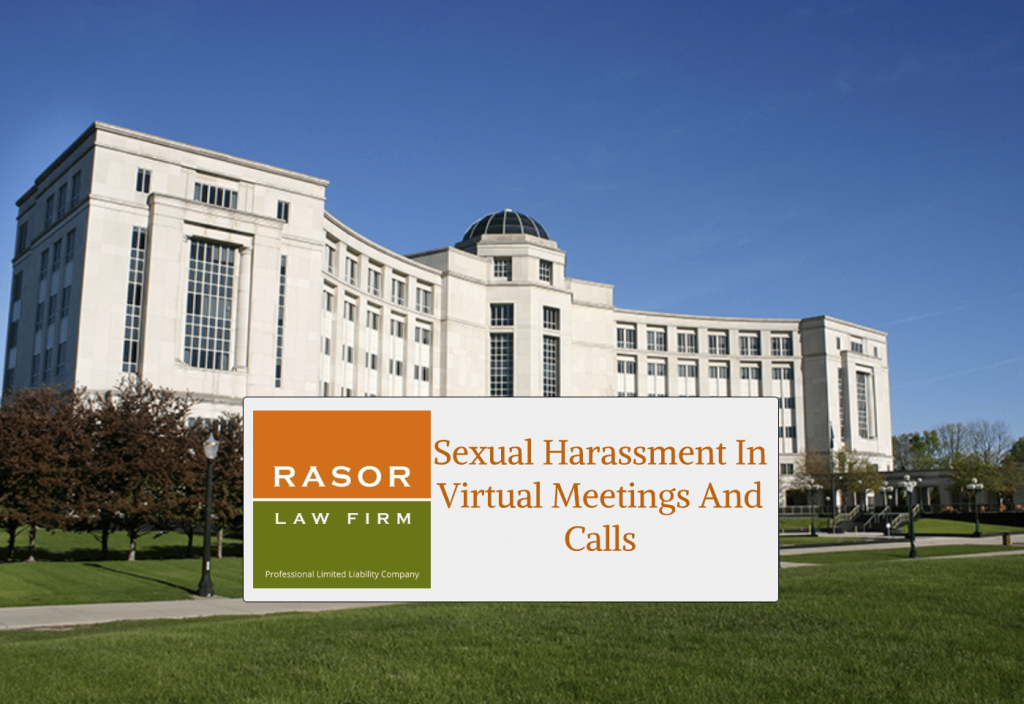The rise in remote work has transformed the way we communicate with colleagues and clients. However, with this shift comes new challenges, including the growing issue of Virtual Meeting Harassment. This form of misconduct can take many shapes during online meetings and calls—from inappropriate comments or gestures to unsolicited private messages during business discussions. Individuals experiencing this often feel trapped, humiliated, or powerless, especially when trying to maintain professionalism in a home or remote work environment. What makes virtual harassment particularly troubling is how easily it can occur and how difficult it may be to prove. Unlike in physical settings, harassment during virtual calls can happen discreetly in chat boxes or from anonymous participants. This blog aims to unpack the severity and legal considerations of Virtual Meeting Harassment, particularly in Michigan. We’ll also offer guidance on recognizing, responding to, and preventing it, as well as understanding your legal rights. No one should have to sacrifice their safety or dignity in the digital workplace.
Defining the problem behind harassment in virtual settings
Virtual Meeting Harassment refers to any unwelcome or inappropriate behavior that occurs during online meetings, calls, or virtual collaboration spaces. Unlike traditional forms of harassment, this happens over digital platforms such as Zoom, Microsoft Teams, or Google Meet. The behavior can be verbal, visual, or written and is typically targeted toward specific individuals, often based on gender, race, appearance, or other personal attributes.
For example, a male colleague might make suggestive comments about a female coworker’s appearance over a video meeting. Another instance could involve someone repeatedly sending inappropriate direct messages through the platform’s chat feature. These behaviors may seem less severe when compared to physical workplace misconduct, but the psychological effects are just as damaging. Victims may feel embarrassed or intimidated, particularly when they are isolated due to remote work.
Understanding that virtual interactions are not exempt from workplace conduct standards is vital. Laws that protect employees from harassment in physical settings often extend to virtual environments. This makes it crucial for individuals and companies to recognize the forms this harassment can take and how to legally address it.
Why harassment during online meetings has real consequences
Virtual Meeting Harassment can have both immediate and long-term implications for victims. In today’s digital work culture, many professionals spend a significant portion of their day on virtual platforms. That’s why harassment in these spaces can deeply affect job performance, mental health, and career progression.
Unlike face-to-face interactions, virtual meetings may make it easier for harassers to hide behind screens, increasing the frequency and severity of misconduct. This anonymity can lead to unchecked behavior unless companies implement strong preventive policies. The cumulative stress and emotional toll on victims can result in decreased productivity, burnout, or even resignation.
- Scenario 1: A marketing manager is repeatedly subjected to lewd jokes during virtual team meetings. Consequence: She files a complaint but ends up leaving the company due to lack of support.
- Scenario 2: An intern receives flirtatious messages from a supervisor during daily check-ins. Consequence: The intern becomes uncomfortable and stops attending meetings, jeopardizing their internship.
- Scenario 3: A non-binary employee is misgendered and mocked on internal video calls. Consequence: The employee suffers emotional distress and starts seeking legal recourse.
Navigating harassment during video calls in Michigan
- Step 1: The victim should document the harassment by saving chat logs, screenshots, and meeting transcripts. This evidence is crucial for any future claims.
- Step 2: Victims may then report the incident to their company’s HR or designated complaint department. If no internal support exists, they can seek legal counsel.
- Step 3: Legal action can be taken under Michigan’s Elliott-Larsen Civil Rights Act, which covers hostile work environments in both physical and virtual spaces.
Smart ways to handle and reduce harassment in online meetings
Answers to common questions about harassment on video calls in Michigan
How Rasor Law Firm stands with victims of virtual harassment
Rasor Law Firm is dedicated to supporting those affected by workplace and Virtual Meeting Harassment. With years of legal experience in Michigan employment law, our team navigates these sensitive issues with empathy and precision. Whether you need help gathering evidence, filing a complaint, or pursuing legal action, we provide guidance at every step. Our attorneys understand the emotional impact such situations can have, and we work diligently to ensure our clients feel heard and protected. The firm prides itself on empowering victims by helping them understand their rights and exploring all possible legal paths. With Rasor Law Firm, you’re not just hiring a lawyer—you’re gaining a partner committed to standing by you through difficult times.


